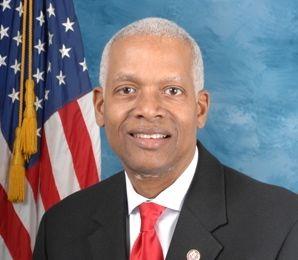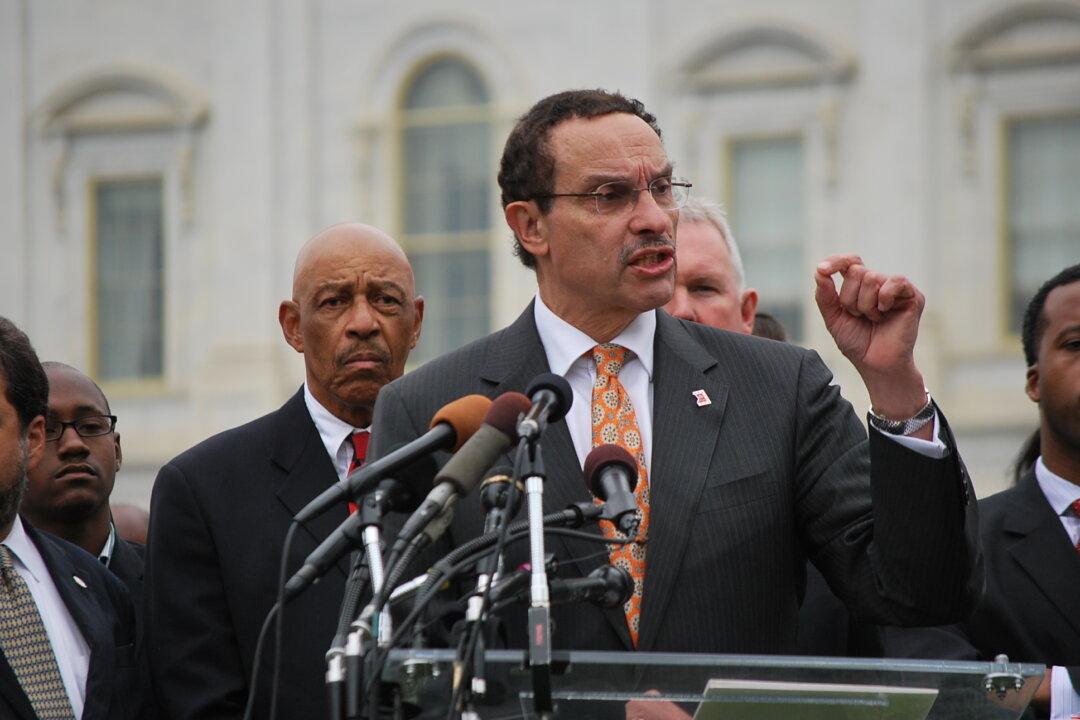WASHINGTON—Members of the House offered free screenings for hepatitis B and hepatitis C on May 23 in honor of National Hepatitis Awareness Month. Many people who are infected do not know they have the illness.
“For years, I, too, was unaware. But I was tested, sought treatment, and I am very fortunate to have beaten this disease. I am living proof that testing saves lives,” said Rep. Hank Johnson (D-Ga.), who has recovered from hepatitis C. Rep. Johnson is a champion of hepatitis C awareness campaigns and an advocate of testing.
The illness often has no symptoms, but if it is diagnosed early, medications can save lives, according to the Centers for Disease Control (CDC). Untreated hepatitis can cause liver damage, cirrhosis, and cancer. Of the more than 5.3 million people in the U.S. with hepatitis B and/or hepatitis C, 65 to 75 percent are not aware they are infected, according to Johnson’s constituent newsletter.
All baby boomers, born between 1945 and 1965, should be tested, according to the CDC. All Americans of Asian heritage should also be tested, according to the CDC.
The National Viral Hepatitis Roundtable, the Hepatitis B Initiative of Washington, D.C., and the Congressional Viral Hepatitis Caucus presented the testing event, one of many other events raising awareness of the disease this month.
Congressmen Johnson, Bill Cassidy, Charlie Dent and Mike Honda, along with Ron Valdiserri, Deputy Assistant Secretary for Health & Human Services and John Ward, Director of the Division of Hepatitis at the Centers for Disease Control and Prevention attended.
House staffers, including security guards, took the tests.
Volunteers and supporters of the Hepatitis B Initiative of Washington, D.C., (HBI-DC) gathered for its third annual gala fundraiser on May 19 at China Garden restaurant in Rossyln. Community partners, corporate and individual donors, and doctors and nurses who provide free screening and vaccinations recognized HBI-DC’s accomplishments.
Half of all Americans with hepatitis B are Asian-American and Pacific Islanders, according to the CDC. Approximately one in 12 AAPIs have chronic hepatitis B.
Hepatitis is defined as an inflammation of the liver, but the word also refers to strains of viruses that affect the liver, including liver cancer, according to the CDC. Being blood borne, hepatitis B can be transmitted from an infected mother to her child at birth.
When Dr. Mark Li, physician and president of the Association of Chinese American Physicians Mid-Atlantic Chapter first began to advocate for hepatitis B screening, the disease was little known in the Asian community, according to Li, and hepatitis B and C advocates did not work together. He has worked to change that, and made progress.
“I was invited by the American Liver Foundation to do an event in Congress in 2009,” said Li.
In addition to advocating, Li has conducted research on hepatitis B. His Maryland hepatitis B project connected Asian-American doctors, and the results were published in a journal for the National Medical Association in 2007. HBI-DC presented Li with an award to recognize his pro bono work screening, educating, and vaccinating people for hepatitis B .
In D.C., funding is limited for hepatitis B testing programs, according Yujiang Jia, chief epidemiologist with the Washington D.C., Department of Health HIV/AIDS Administration. However, the city offers vaccinations for hepatitis free of charge through the Department of Health Immunization Program.
Pharmaceutical drug maker AbbVie announced early this month that its hepatitis C virus infection treatment has been designated as a breakthrough therapy by the Food and Drug administration.
The breakthrough therapy designation is intended to expedite the development and review of drugs for life-threatening conditions. The all-oral 12-week treatment is in phase three testing in which the drug is administered to people who are closely monitored. It’s the last step before a drug becomes available to the public.


